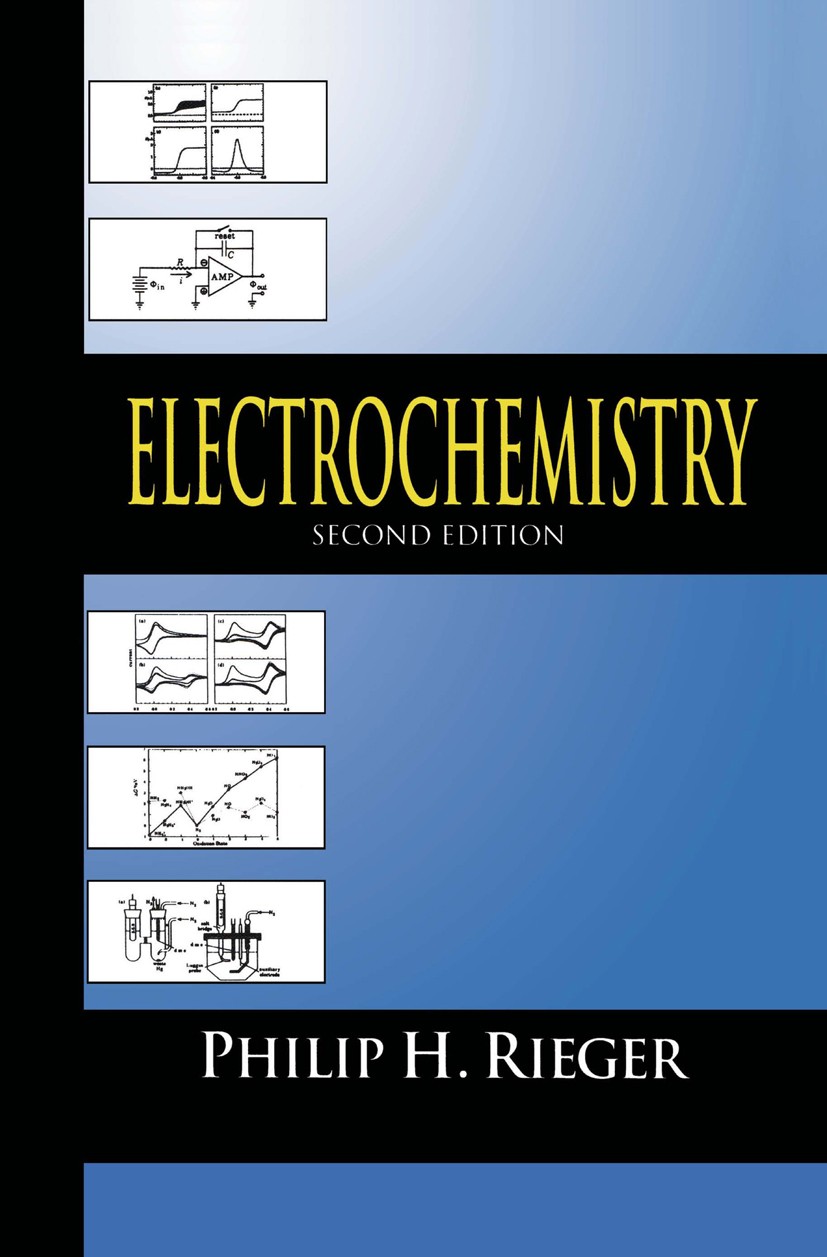| 书目名称 | Electrochemistry | | 编辑 | Philip H. Rieger | | 视频video | http://file.papertrans.cn/306/305884/305884.mp4 | | 图书封面 |  | | 描述 | It has been fashionable to describe electrochemistry as a discipline at the interface between the branches of chemistry and many other sciences. A perusal of the table of contents will affirm that view. Electrochemistry finds applications in all branches of chemistry as well as in biology, biochemistry, and engineering; electrochemistry gives us batteries and fuel cells, electroplating and electrosynthesis, and a host of industrial and technological applications which are barely touched on in this book. However, I will maintain that electrochemistry is really a branch of physical chemistry. Electrochemistry grew out of the same tradition which gave physics the study of electricity and magnetism. The reputed founders of physical chemistry-Arrhenius, Ostwald, and van‘t Hoff-made many of their contributions in areas which would now be regarded as electrochemistry. With the post-World War II capture of physical chemistry by chemical physicists, electrochemists have tended to retreat into analytical chemistry, thus defining themselves out of a great tradition. G. N. Lewis defined physical chemistry as "the study of that which is interesting." I hope that the readers of this book will fi | | 出版日期 | Book 1994Latest edition | | 关键词 | Ion; double layer; electrochemistry; electrode potential; electrolysis; electrosynthesis; fuel cell; kineti | | 版次 | 2 | | doi | https://doi.org/10.1007/978-94-011-0691-7 | | isbn_softcover | 978-94-010-4298-7 | | isbn_ebook | 978-94-011-0691-7 | | copyright | Springer Science+Business Media Dordrecht 1994 |
The information of publication is updating

|
|
 |Archiver|手机版|小黑屋|
派博传思国际
( 京公网安备110108008328)
GMT+8, 2025-12-24 21:26
|Archiver|手机版|小黑屋|
派博传思国际
( 京公网安备110108008328)
GMT+8, 2025-12-24 21:26


